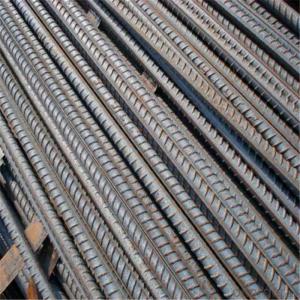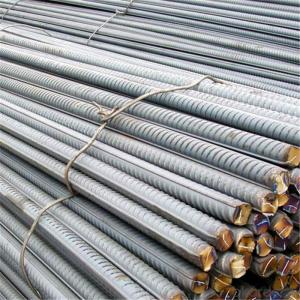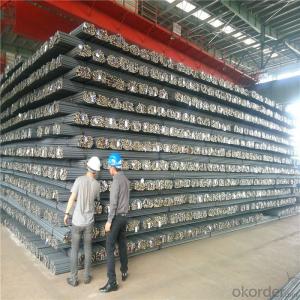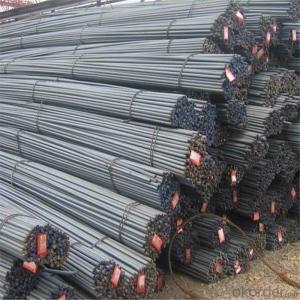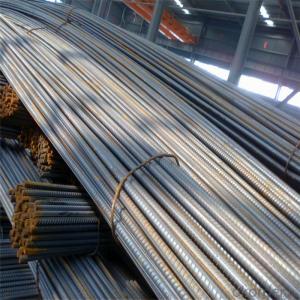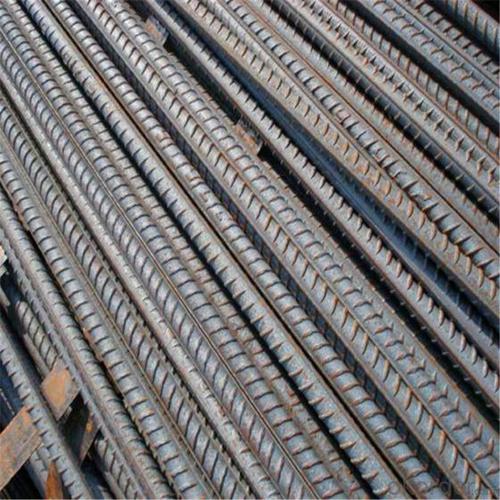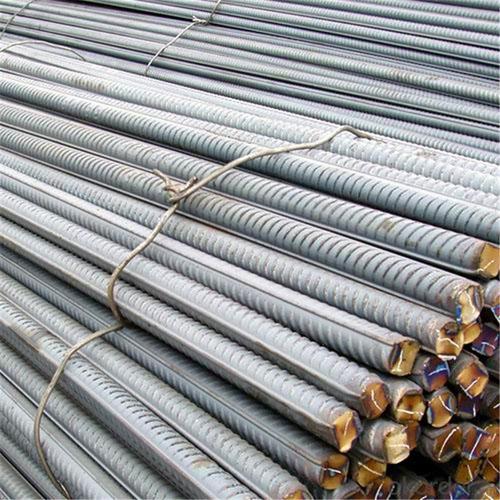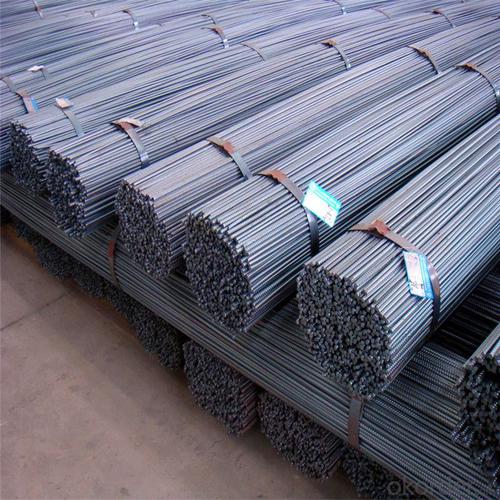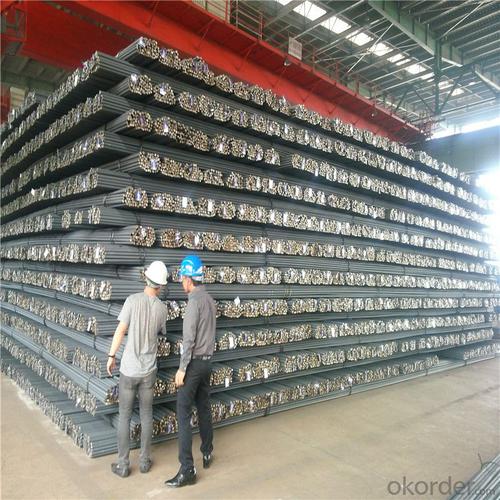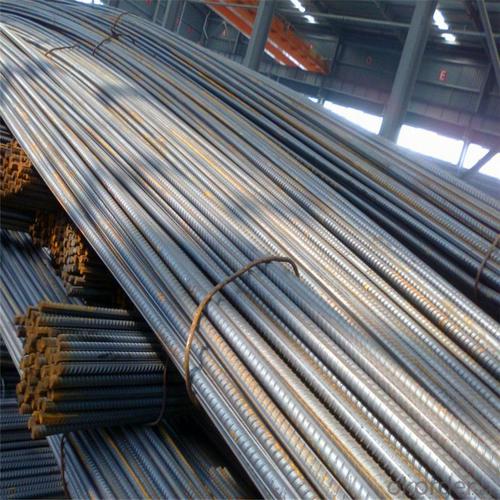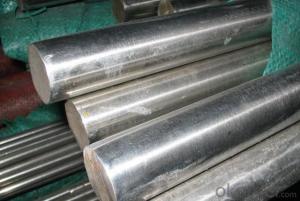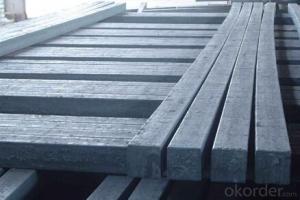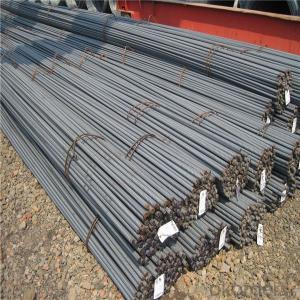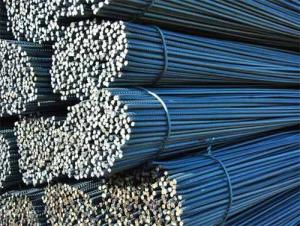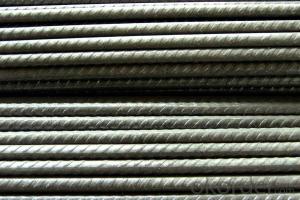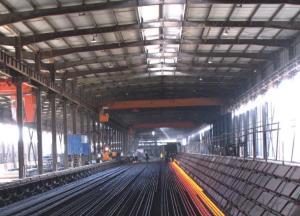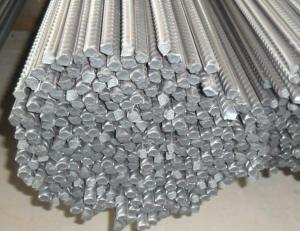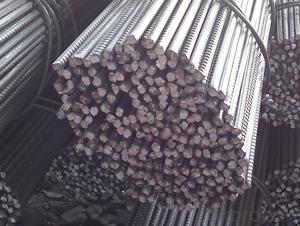Cold Rolled Ribbed Bars 6mm 8mm 10mm 12mm
- Loading Port:
- Tianjin
- Payment Terms:
- TT or LC
- Min Order Qty:
- 100 m.t.
- Supply Capability:
- 500000 m.t./month
OKorder Service Pledge
OKorder Financial Service
You Might Also Like
Specification
Cold Rolled Ribbed Bars 6mm
Description of Cold Rolled Ribbed Bars 6mm
1, Diameter: 5.5mm-10mm Cold Rolled Ribbed Bars 6mm
10m- 40mm Cold Rolled Ribbed Bars 6mm
2, Length: 6m, 9m, 12m or customized
3, Standard: GB, ASTM, AISI, SAE, DIN, JIS, EN
OEM technology - send detailed technical parameters for accurate quotation.
2, Produce Process: smelt iron - EAF smelt billet - ESR smelt billet -
hot rolled or forged to get the steel round bar and plate
3, Heat Treatment: annealing, normalizing, tempering, quenching
4, Surface Treatment: Black
5, Quality Assurance: We accept third party inspection for all orders.
You can ask testing organizations such as SGS, BV, etc. to test our products before shipping.
Chemical Composition of Cold Rolled Ribbed Bars 6mm
Grade | Technical data of the original chemical composition(%) | |||||
Reinforcing steel bar HRB335 | C | Mn | Si | S | P | B |
≤0.25 | ≤1.60 | ≤0.80 | ≤0.045 | ≤0.045 | >0.0008 | |
Physics Capability | ||||||
Yield Strength(N/cm2) | Tensile Strength(N/cm2) | Elongation(%) | ||||
≥ 335 | ≥490 | ≥16 | ||||
Reinforcing steel bar HRB400 | C | Mn | Si | S | P | B |
≤0.25 | ≤0.16 | ≤0.80 | ≤0.045 | ≤0.045 | 0.04-0.12 | |
Physics Capability | ||||||
Yield Strength(N/cm2) | Tensile Strength(N/cm2) | Elongation(%) | ||||
≥ 400 | ≥ 570 | ≥ 14 | ||||
Products Show of Cold Rolled Ribbed Bars 6mm
Company Information
CNBM International Corporation is the most important trading platform of CNBM group.
Whith its advantages, CNBM International are mainly concentrate on Cement, Glass, Iron and Steel, Ceramics industries and devotes herself for supplying high qulity series of refractories as well as technical consultancies and logistics solutions.


F A Q
1, Your advantages?
professional products inquiry, products knowledge train (for agents), smooth goods delivery, excellent customer solution proposale
2, Test & Certificate?
SGS test is available, customer inspection before shipping is welcome, third party inspection is no problem
3, Factory or Trading Company?
CNBM is a trading company but we have so many protocol factories and CNBM works as a trading department of these factories. Also CNBM is the holding company of many factories.
4, Payment Terms?
30% TT as deposit and 70% before delivery.
Irrevocable L/C at sight.
5, Trading Terms?
EXW, FOB, CIF, FFR, CNF
6, After-sale Service?
CNBM provides the services and support you need for every step of our cooperation. We're the business partner you can trust.
For any problem, please kindly contact us at any your convenient time.
We'll reply you in our first priority within 24 hours.
- Q: How does special steel maintain its strength at different temperatures?
- Special steel maintains its strength at different temperatures due to its unique composition and heat treatment process. It is alloyed with elements like chromium, nickel, and molybdenum, which form stable compounds at high temperatures, preventing the steel from losing its strength. The heat treatment process involves carefully controlling the cooling rate, which further enhances the steel's microstructure and ensures its strength is retained even at extreme temperatures.
- Q: What are the factors to consider when selecting special steel for a specific application?
- When choosing special steel for a particular use, there are several critical factors to take into account: 1. Mechanical properties play a crucial role in determining the steel's suitability for the application. Strength, hardness, toughness, and ductility are all important considerations. Matching the steel's mechanical properties to the specific requirements of the application is essential to achieve optimal performance and ensure safety. 2. The steel's resistance to corrosion is another key factor to consider. Different environments, such as marine, chemical, or high-temperature conditions, may necessitate the use of corrosion-resistant alloys or coatings. This is vital to ensure the steel's longevity and reliability in service. 3. Temperature resistance is crucial in many applications. The steel must be able to withstand high or low temperatures without compromising its mechanical properties. Factors like thermal expansion, thermal conductivity, and resistance to thermal fatigue should be taken into account to ensure effective performance in the intended environment. 4. If welding or fabricating the steel into complex shapes is necessary, the ease of weldability and fabricability becomes an important consideration. Certain steels may require specialized welding techniques or preheating to prevent cracking or distortion during fabrication. 5. Cost is a significant consideration as well. It is important to find a balance between the desired properties of the steel and the available budget. This ensures cost-effectiveness without compromising performance or safety. 6. The availability of the chosen steel grade in the required form, size, and quantity is another critical factor. It is crucial to ensure that the selected steel can be easily sourced and obtained within the required timeframe. This helps to avoid project delays or cost overruns. 7. Compliance with industry-specific standards, specifications, or regulations is essential. Depending on the industry or application, there may be specific requirements that the steel must meet. Selecting a steel grade that complies with these standards is necessary to ensure compliance and maintain necessary certifications or approvals. By considering these factors, engineers and manufacturers can make well-informed decisions when choosing special steel for specific applications. This ensures optimal performance, durability, and safety.
- Q: What are the different grades of special steel?
- There are various grades of special steel, including stainless steel grades such as 304, 316, and 410, tool steel grades like D2, A2, and M2, and high-speed steel grades such as M42 and T15. Each grade has unique properties and applications, making them suitable for specific purposes in industries like construction, automotive, and manufacturing.
- Q: How is high-strength stainless steel used in the production of structural components?
- High-strength stainless steel is commonly utilized in the production of structural components due to its remarkable properties. Its high tensile strength, corrosion resistance, and durability make it ideal for constructing critical load-bearing structures such as bridges, buildings, and infrastructure. Additionally, the stainless steel's ability to withstand extreme environmental conditions and its aesthetic appeal further enhance its usage in various structural applications.
- Q: What are the physical properties of special steel?
- Special steel refers to a broad category of steel alloys that possess unique physical properties compared to regular steel. These properties can vary depending on the specific type of special steel. However, some common physical properties include high strength, hardness, toughness, and resistance to corrosion and wear. Special steels are often tailored for specific applications, such as automotive components, aerospace structures, or toolmaking, to meet the demanding requirements of these industries.
- Q: How does special steel contribute to the electrical conductivity of products?
- Special steel contributes to the electrical conductivity of products by offering high levels of purity and low levels of impurities. Its composition and manufacturing process ensure that it has excellent conductivity and minimal resistance, allowing for efficient flow of electric current.
- Q: How does special steel perform in terms of magnetic properties?
- Special steel can exhibit various magnetic properties depending on its composition and processing. Some types of special steel, such as stainless steel, are known for their low magnetic permeability, making them suitable for applications where magnetism needs to be minimized. On the other hand, certain special steels like electrical steel are specifically designed to have high magnetic permeability, making them ideal for use in transformers and electric motors. Overall, the magnetic properties of special steel can be tailored to meet specific requirements, offering versatility in different applications.
- Q: What are the different testing methods for special steel?
- There are several testing methods that are commonly used for special steel to ensure its quality and performance. These methods include: 1. Chemical Analysis: This method involves determining the chemical composition of the steel, including the presence of various elements and impurities. It helps in verifying the steel's adherence to specific chemical composition requirements. 2. Mechanical Testing: This testing method is used to evaluate the mechanical properties of special steel, such as its strength, ductility, hardness, and toughness. It includes tests like tensile testing, impact testing, hardness testing, and fatigue testing. 3. Microstructure Analysis: Microscopic examination of the steel's microstructure is essential to assess its internal structure, grain size, and shape. Techniques like optical microscopy, electron microscopy, and X-ray diffraction are used to observe the steel's microstructure and identify any defects or abnormalities. 4. Non-Destructive Testing (NDT): NDT methods are used to inspect the steel without causing any damage to it. These methods include ultrasonic testing, magnetic particle testing, liquid penetrant testing, and radiographic testing. They help detect surface and subsurface defects such as cracks, voids, inclusions, and discontinuities. 5. Corrosion Testing: Special steel is often used in applications where resistance to corrosion is crucial. Various corrosion testing methods, such as salt spray testing, electrochemical testing, and immersion testing, are used to evaluate the steel's resistance to corrosion and determine its corrosion rate. 6. Metallography: Metallographic testing involves preparing a cross-section of the steel sample, polishing it, and etching it to reveal its microstructure. It helps in assessing the quality, heat treatment effects, and grain size distribution of the steel. 7. Dimensional and Surface Inspection: This testing method ensures that the special steel meets the required dimensional tolerances and surface quality. Techniques such as dimensional measurement, surface roughness measurement, and visual inspection are used to verify the steel's conformity. By employing these testing methods, manufacturers and quality control personnel can ensure that special steel meets the necessary standards, specifications, and customer requirements.
- Q: What are the applications of special steel in the medical field?
- The medical field benefits greatly from the unique properties and characteristics of special steel, which has a wide range of applications. Surgical instruments are one major area where special steel, such as stainless steel, is extensively used. These instruments, including scalpels, forceps, scissors, and surgical needles, require strength, durability, and resistance to corrosion. Special steel provides the necessary qualities to ensure these instruments maintain their sharpness and integrity even after repeated use and sterilization. Another important application of special steel in healthcare is the production of implants and prosthetics. Various special steel alloys, such as titanium alloys, cobalt-chromium alloys, and nickel-titanium alloys, are commonly employed to manufacture orthopedic and dental implants, as well as other medical devices. These alloys possess excellent biocompatibility, corrosion resistance, and mechanical strength, which make them ideal for long-term implantation within the human body. Special steel also plays a crucial role in the construction of medical equipment and machinery. Diagnostic machines like MRI scanners and X-ray machines often incorporate special steel components due to their magnetic properties and ability to withstand high temperatures. By utilizing special steel, the accuracy, reliability, and safety of these devices are ensured. Furthermore, special steel is used in the manufacturing of medical storage and transportation systems. Steel cabinets, trolleys, and containers are commonly used to store and transport medical supplies, instruments, and samples. The use of special steel in these systems guarantees durability, hygiene, and a long lifespan. Special steel is easy to clean, resistant to contamination, and maintains its quality over time. In conclusion, special steel is extensively utilized in the medical field for a variety of purposes. From surgical instruments to implants, medical equipment to storage systems, special steel is an essential material that contributes to the effectiveness, reliability, and safety of medical procedures and treatments. Its unique properties make it an indispensable resource in the healthcare industry.
- Q: What are the properties of titanium alloys?
- Titanium alloys have several notable properties, including high strength-to-weight ratio, excellent corrosion resistance, and good biocompatibility. These alloys also exhibit high temperature stability, low thermal expansion, and great fatigue strength, making them suitable for a wide range of applications in industries such as aerospace, automotive, and medical.
Send your message to us
Cold Rolled Ribbed Bars 6mm 8mm 10mm 12mm
- Loading Port:
- Tianjin
- Payment Terms:
- TT or LC
- Min Order Qty:
- 100 m.t.
- Supply Capability:
- 500000 m.t./month
OKorder Service Pledge
OKorder Financial Service
Similar products
Hot products
Hot Searches
Related keywords
